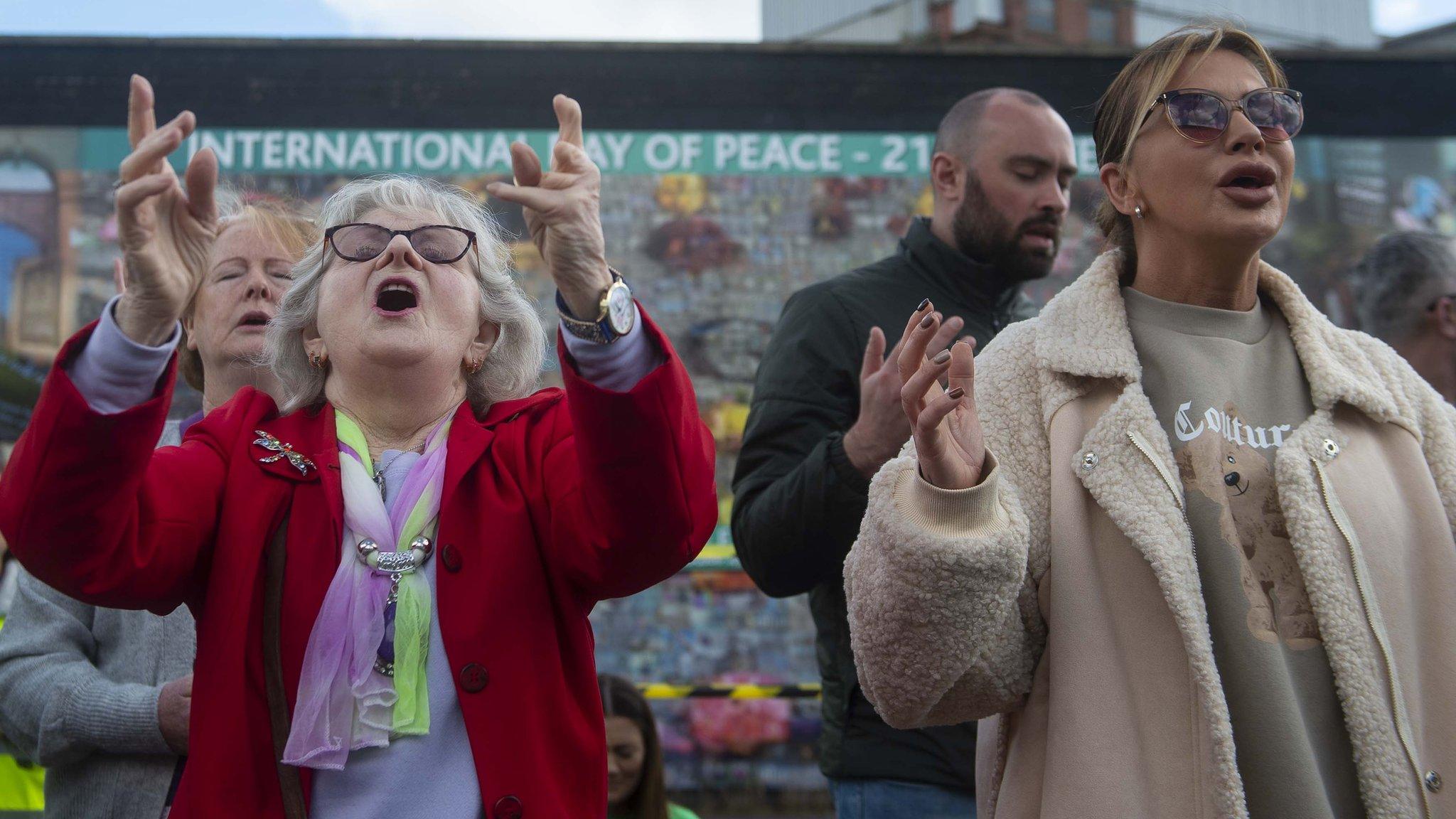Hume family distance themselves from new museum
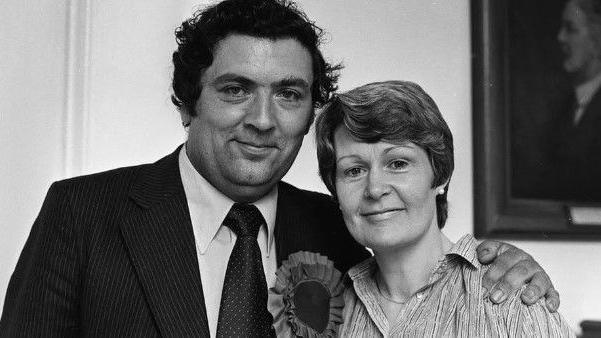
Pat Hume raised concerns with Peacemakers Museum organisers months before her husband died in 2020, saying he would not want to be involved with it.
- Published
The family of John Hume have distanced themselves from a new museum in Londonderry which features the Nobel Peace Prize winner.
The Peacemakers Museum opened in Derry’s Bogside on Monday with a key focus on Mr Hume and two Sinn Féin politicians, former Deputy First Minister Martin McGuinness and Mitchel McLaughlin.
In a statement, the Hume family said their mother, Pat, told the museum’s organisers months before her husband died in 2020 that he would not support it because it was not inclusive.
The museum’s project manager, Michael Cooper, said they “engaged with the party [SDLP] and the Hume family from the beginning”, asking them to become involved with a content steering group, but the family did not take up that offer.
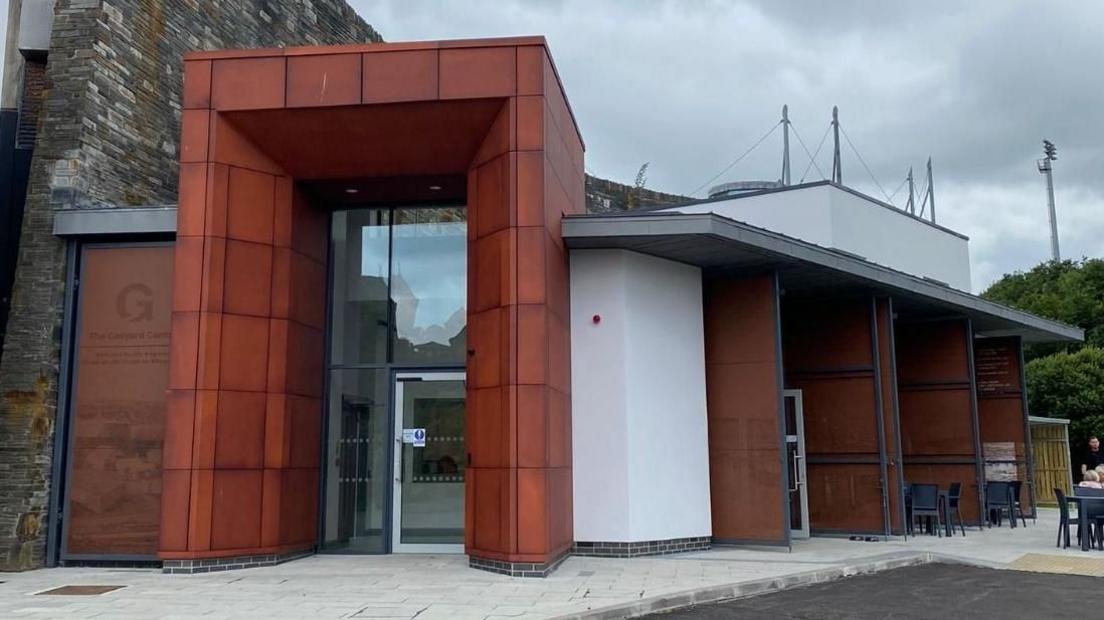
The Peacemakers Museum officially opened in the Gasyard Centre in Derry’s Bogside on Monday
“The door was open to them the whole way through," Mr Cooper said.
In a statement, the Hume family published correspondence between Mr Hume's wife, Pat, and those behind the museum project in April 2020, less then four months before he died.
She said that if her husband were well, he would not wish to be involved with it because of the absence of a "fundamental commitment to inclusivity".
The Hume family said they had received further emails from museum organisers, the Gasyard Trust, and said their mother received text messages, but did not receive a revised concept of the museum following her initial correspondence.
Mr Cooper said it was “sad” the Hume family had distanced themselves from the museum.
He said when Pat Hume corresponded with museum organisers, "we had given the broad perimeters".
He pointed to “female and LGBT activists” reflected in the final exhibition.
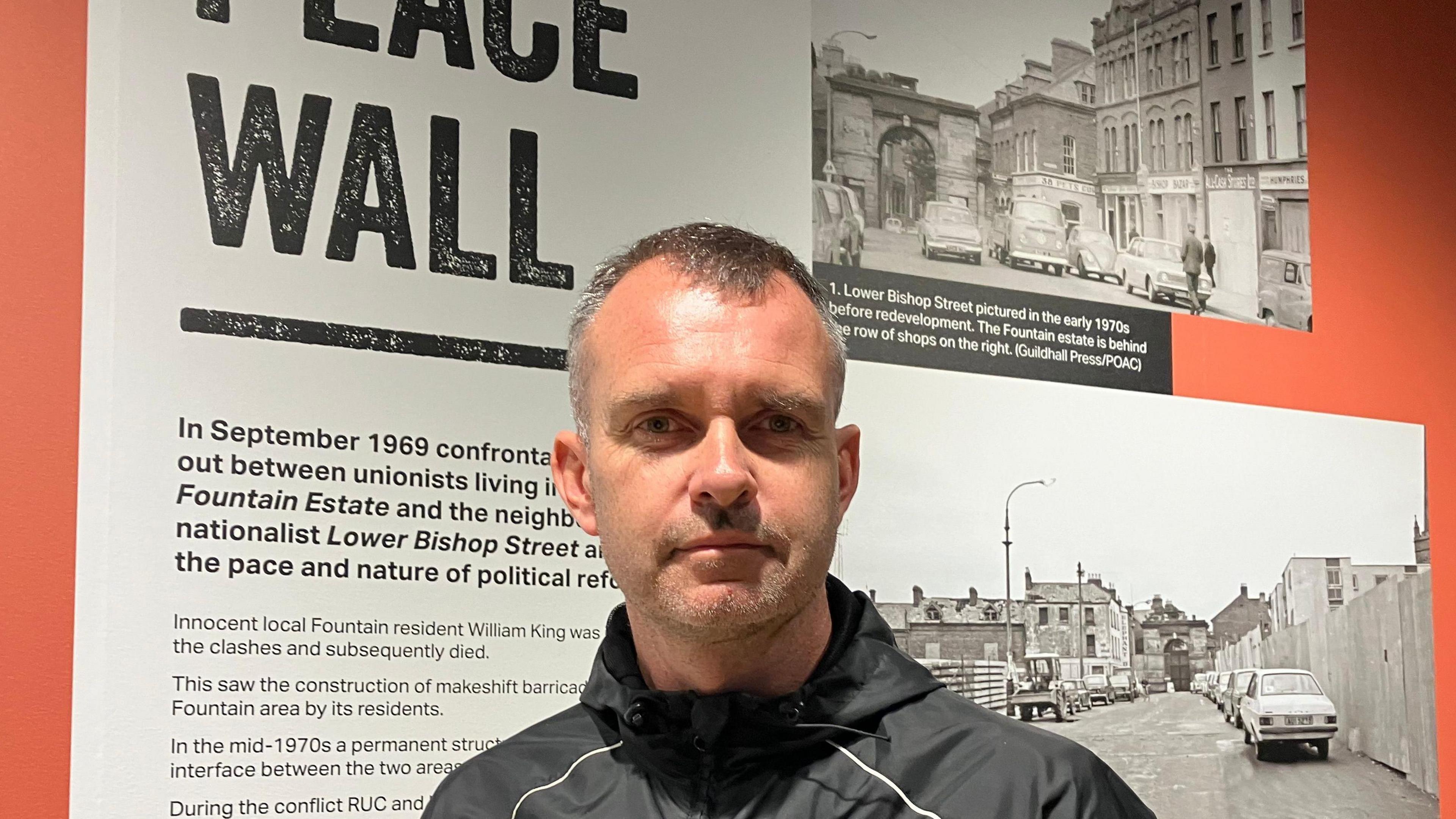
The museum’s project manager, Michael Cooper
The museum spotlights the roles of the three men, all of whom hailed from the Bogside area of Derry, and the roles they played in the run-up to the 1998 Good Friday Agreement.
John Hume is regarded as a key architect of that agreement.
Martin McGuinness, a former IRA leader, was Sinn Féin's chief negotiator during the peace process.
Mitchel McLaughlin, the only one of the three still alive, went on to become a speaker of the Stormont Assembly before he retired from politics.
The historic deal helped bring an end to 30 years of conflict in Northern Ireland, known as the Troubles.
Asked about wider perspectives of the Troubles, Mr Cooper said: “We can’t speak for unionism.
“It would be very difficult to reflect every single voice."
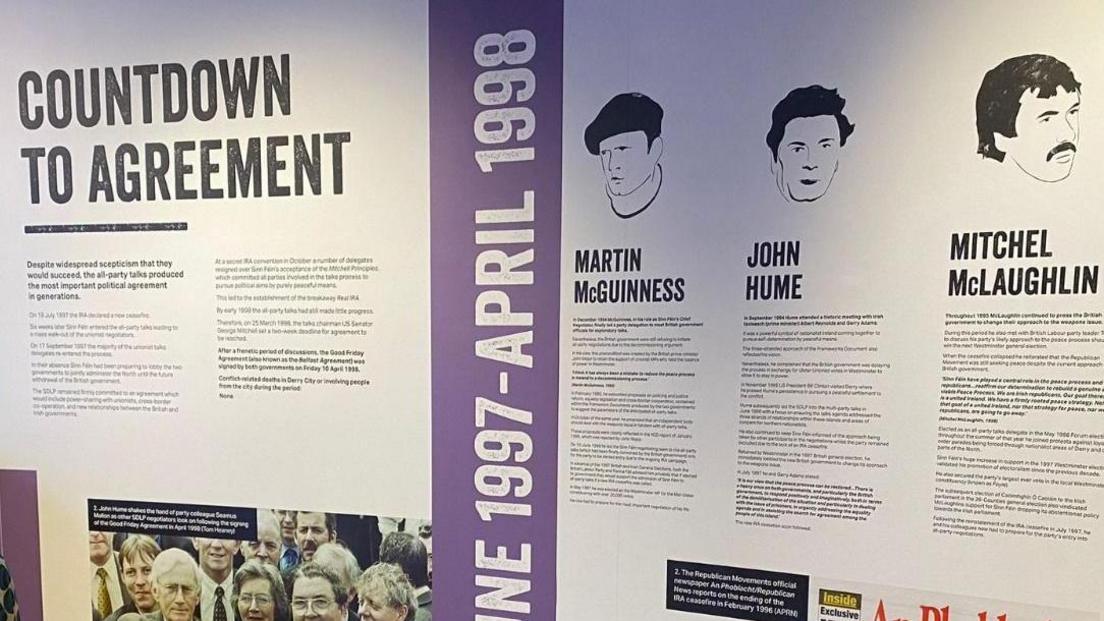
The museum focuses heavily on former SDLP leader John Hume, former deputy first minister Martin McGuinness and former Stormont Assembly speaker, Mitchel McLaughlin
The Executive Office (TEO), which provided £1.8m to the project's development, has admitted it did not carry out "sufficient due diligence" over concerns previously raised by the Hume family.
In a letter seen by the BBC, Permanent Secretary Dr Denis McMahon said officials had offered to apologise to the Hume family and had commissioned an independent review of how TEO approached the concerns raised by Pat Hume.
The letter was sent in July 2023 to current SDLP leader Colum Eastwood and the party's Foyle assembly members Sinéad McLaughlin and Mark H Durkan.
Then in December 2023, a TEO official wrote to Ms McLaughlin saying that while it was regrettable there was not better communication, the review found there was no breach of the terms of the funding offer.
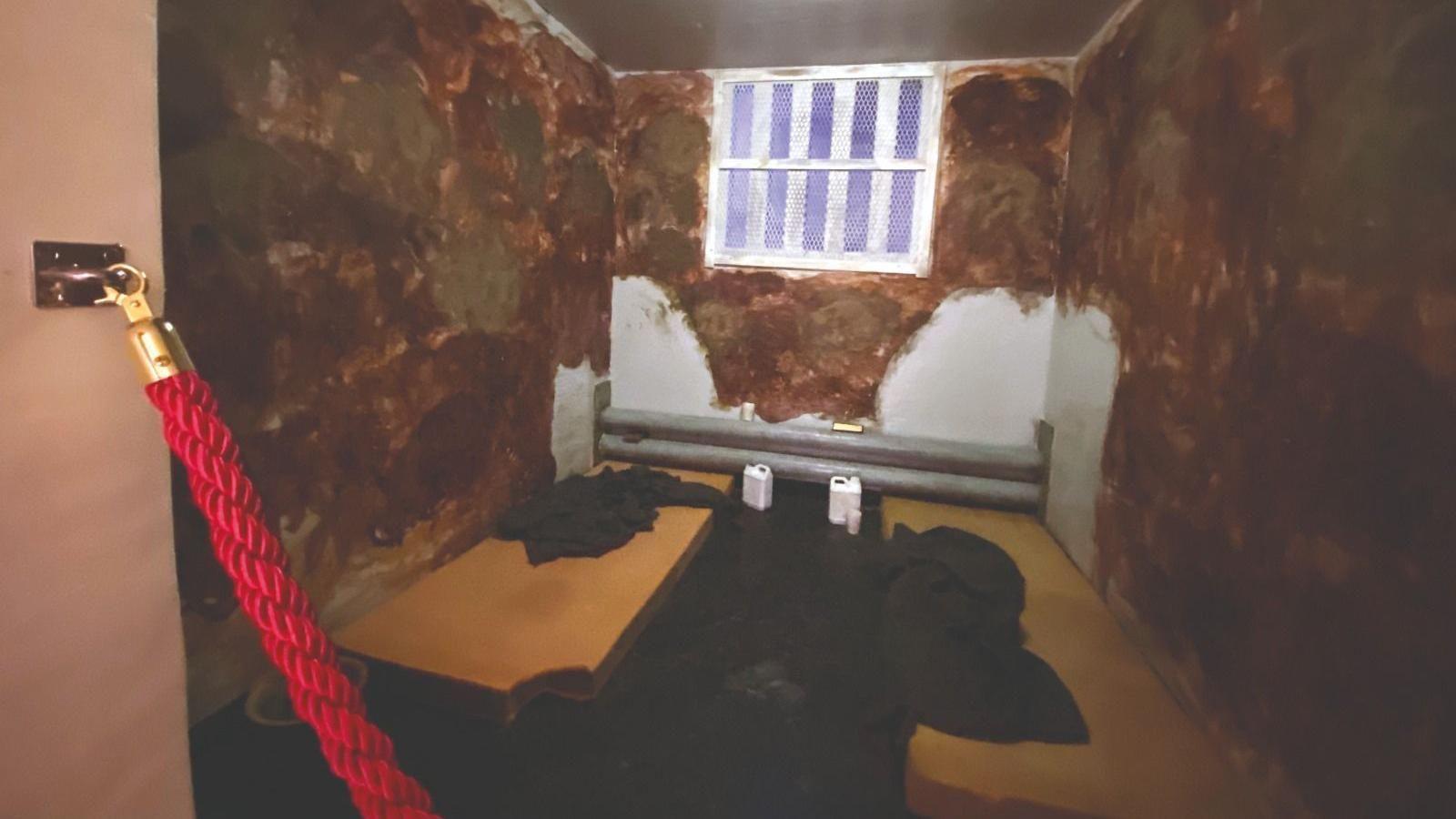
One museum exhibit is a recreation of a prison cell at the Maze Prison during what became known as the "dirty" or "no-wash" protests by prisoners during the Troubles.
The project has also been financially supported by the National Lottery Heritage Fund, Stormont's Departments for Communities and Infrastructure and Derry City and Strabane District Council.
'Humes expressed explicit objections'
In a statement, the SDLP said: "It is unacceptable, frankly, that the wishes of the Hume family, including those of Pat Hume, were not respected by those involved in the development of this project.
"Their explicit objections were founded in the narrow ethos and focus of the project which has expunged the diverse narratives and experiences that John sought to bring together in peace.
"John Hume’s legacy isn’t something that should be used for funding applications.
“The SDLP has raised significant concerns on a number of occasions with the Executive Office as a key funder of the project and we are entirely dissatisfied with their response."
Mr Cooper said organisers “weren’t focusing on John [Hume] to secure funding”.
BBC News NI has approached TEO for comment.
The National Lottery Heritage Fund said the content of the museum was guided by principles for remembering in a public space, developed by the community relations council and the Heritage Fund.
They said the museum "presents the stories of a community", including an archive of 50 oral histories which "help deepen understanding of their experiences from 1972 - 2007".
- Published13 August 2019
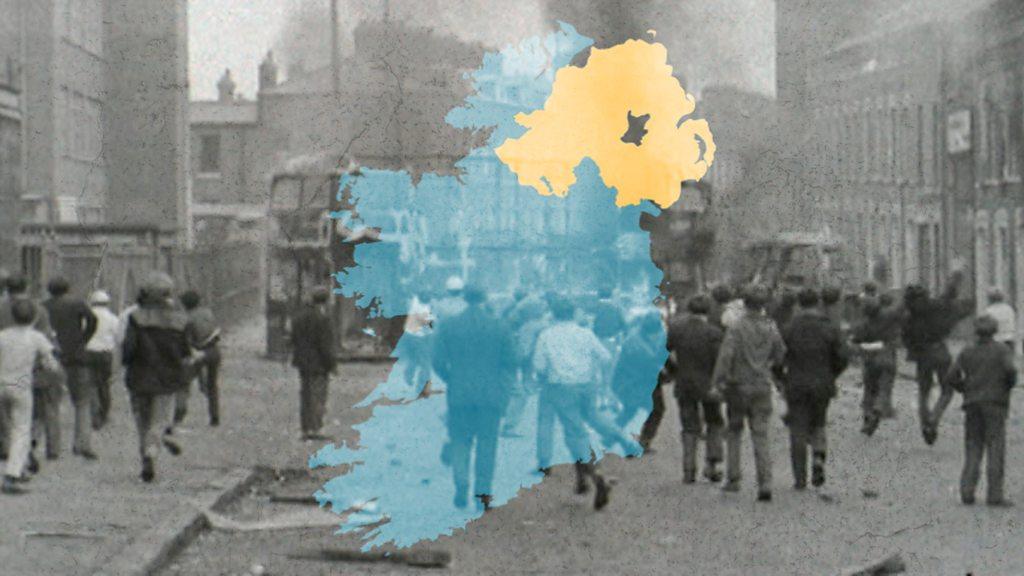
- Published7 April 2023
